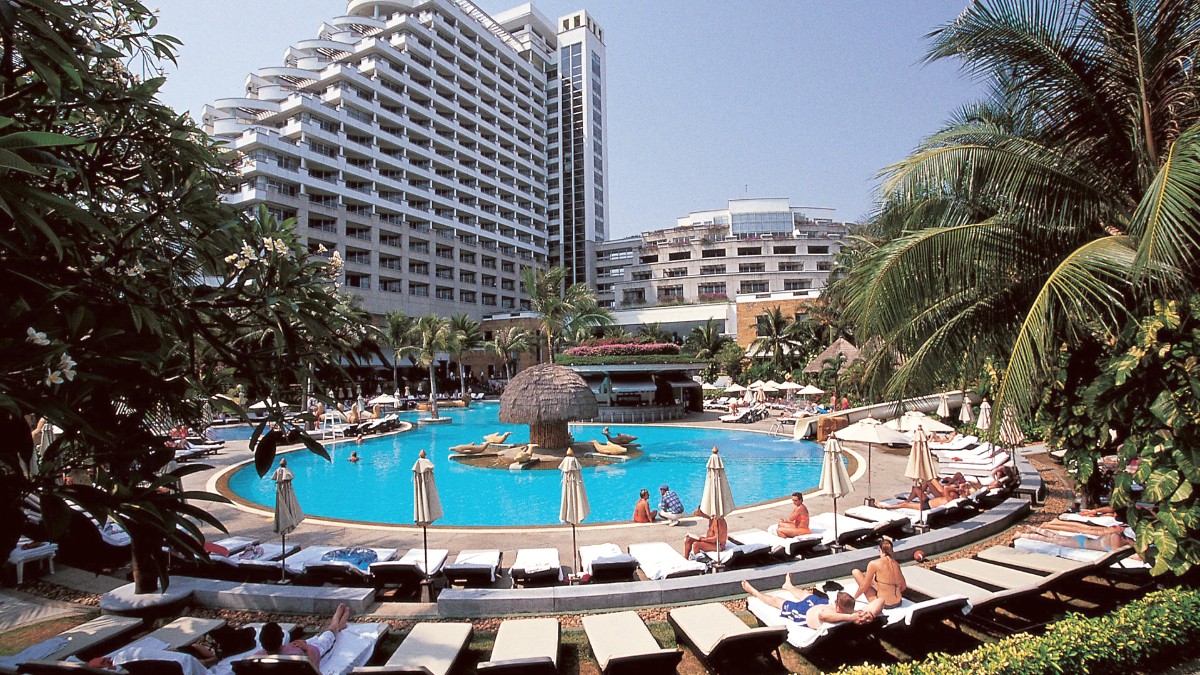
Upper Southern Gulf, Thailand
This period sees the highest temperatures, often 29°C to 35°C (84-95°F). Humidity levels remain consistently high. Still, this season brings much sunshine, good for beach activities, especially in the mornings.
Temperatures average 27°C to 32°C (81-90°F), with continued high humidity. Rainfall occurs regularly, typically in heavy, short bursts, often in the late afternoon or evening. September and October are the wettest months. Even with rain, sunny periods are common, and the landscape appears lush and green.
Monsoons bring heavy rains to Thailand, but Hua Hin generally avoids severe tropical storms. Short, heavy rain showers usually do not impact travel plans for long.
For beach activities, golf, and outdoor tours, the Cool/Dry Season (November to February) presents the best conditions. You find good value and beautiful green scenery, provided you do not mind occasional rain.
November to February
Most comfortable weather with lower temperatures and less humidity. Ideal for all outdoor activities.
Expect higher prices for accommodation and flights. Tourist attractions and beaches will be more crowded. Book well in advance.
March to May & June to August
Fewer crowds at popular sites. Better deals on accommodation and tours. Weather suitable for many activities.
March to May brings very hot temperatures. June to August sees increased rainfall.
September to October
Lowest prices for travel and accommodation. Very few other tourists, offering a quieter experience. Landscapes appear lush.
Highest chance of heavy rainfall, which may disrupt some outdoor activities. Seas can be rougher.
Many nationalities, including citizens of the United States, United Kingdom, Canada, Australia, and most EU member states, enter Thailand for up to 30 days without a visa. For longer stays, apply for a Tourist Visa at a Royal Thai Embassy or Consulate. Other visas apply for work, study, or retirement.
Your passport must be valid for at least six months beyond your planned departure date. Have at least two blank pages for stamps. Immigration officials often ask for proof of your departure. Demonstrate sufficient funds for your stay.
At least 6 months beyond departure.
Proof of departure from Thailand within permitted stay.
10,000 THB per person or 20,000 THB per family.
Recent, meeting specific dimensions.
Fill out accurately if applying for a visa.
Costs vary from budget-friendly choices to luxurious experiences. Understand currency, exchange methods, and typical prices for common expenses.
Thailand uses the Thai Baht (THB). ATMs are widely available throughout Hua Hin. Currency exchange booths, like "SuperRich," often give better rates than banks or airport exchanges.
Estimated daily costs for various travel styles. These are averages and can fluctuate based on your choices.
These figures offer a guide for your daily expenses.
Be aware of vaccination recommendations, common health concerns, and how to access medical care. Follow local safety practices and emergency procedures.
No vaccinations are strictly required for entry to Thailand. However, some are widely recommended for travelers to guard against common diseases. Consult a travel health professional (doctor or specialized clinic) at least 4-6 weeks before your trip for tailored advice.
Ensure your routine vaccinations, like Tdap (tetanus, diphtheria, pertussis) and MMR (measles, mumps, rubella), are current. Depending on specific travel plans, especially for extended time in rural areas, consider Japanese Encephalitis or Rabies vaccinations.
Drink bottled or purified water. Avoid ice made from tap water. Eat well-cooked food, especially from busy street stalls.
Carry Anti-diarrhea medication and oral rehydration salts.
Avoid unpeeled fruits and vegetables washed in tap water.
Mosquitoes are prevalent, especially during the rainy season and at dawn and dusk.
Use Insect repellent containing DEET or Picaridin.
Wear long sleeves and pants during peak mosquito hours.
The tropical sun is strong. Apply high-SPF sunscreen frequently.
Wear a hat, Sunglasses, and seek shade during the hottest parts of the day.
Recognize symptoms of heatstroke (dizziness, nausea, extreme fatigue).
| Service | Number | Notes |
|---|---|---|
| Medical Emergency | 1669 | For urgent medical attention. |
| Police | 191 | General emergencies. |
| Tourist Police | 1155 | English-speaking assistance for tourists. |